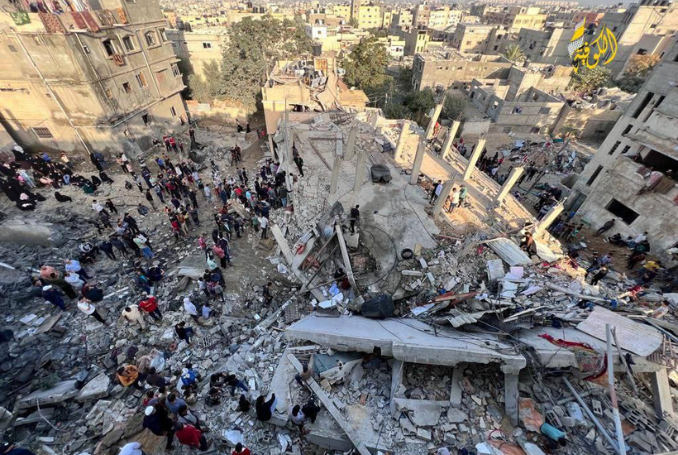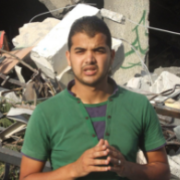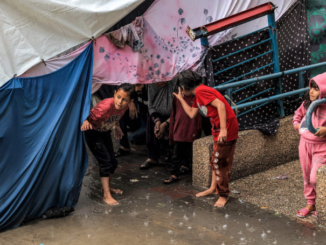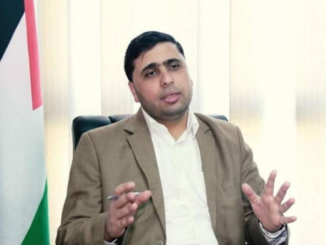
“We have suffered a lot. We are tired of war, tired of our fear for others, and the world does not look at us.” – Ahmed Awad
“Our homes are not something that can be compensated; they are not just mortar and stone.” With these words, Mohammed Jouda describes the situation of those whose homes were destroyed by Israeli airstrikes in Gaza.
“Our homes contain the memories of our daily lives, with all the calmness, noise, and routine,” Jouda told The Palestine Chronicle.
“They hold our whispers, our scents, and our memories. In them, we have our joys, our children’s books, our clothes, and an album full of beautiful memories. They harbor our secrets; no one can compensate us for our destroyed homes.”
Mohammed Washah added, “Our homes are not just stones; they are our dreams. We built them with our efforts; they hold our age and our memories. They are not trivial to us, and they cannot be replaced.”
“It’s true we will build new houses to remain resilient in Gaza, but the new houses will not make up for what has been lost. Our homes were an embrace of tranquility, and there is a distinct scent that we cannot find anywhere else but in our homes,” Washah continued,
“I miss my destroyed house, I miss my room, I miss the place where we used to eat, I miss the kitchen, I miss watching matches on TV in my living room. I miss everything. The pain of yearning is immense, indescribable, and only those whose homes are destroyed can feel this yearning.”
Mohammed Cloub is also the owner of a destroyed home.
“Our homes are the most beautiful thing we have created in our lives,” he told us, adding, “We absolutely reject underestimating them with empty phrases like ‘money is replaceable,’ or ‘stones can be rebuilt,’ or adopting others, or that whoever destroyed them will compensate us after the war. These are foolish and naive expressions that we do not accept in Gaza.”
“In our homes, there were weddings, births, upbringing, teaching, and education. Our homes contained both old and new furniture. In our homes, we ate, played, conversed, laughed, and also experienced sadness. It is not easy to make them worthless or act as if they are as insignificant as a fallen cigarette butt.”
“May God help everyone who lost their home,” Cloub said. “May God compensate them for their significant loss and the grief they have endured. After the war, large-scale crimes and destruction will be revealed, and sorrows we have not yet seen will come to light.”
Unable to Provide Security for Our Children
“Oh God, how difficult it is for men to cry out of frustration, for their inability to provide security for their children, “Dr. Moomen Abdelwahid, an expert in human development, told The Palestine Chronicle.
Ahmed Awad added, “We have suffered a lot. We are tired of war, tired of our fear for others, and the world does not look at us. We cried in Gaza for the victims of the earthquakes in Turkey and Morocco. Our hearts were broken over the massacres of war, and even the city of Derna in Libya saddened us with the floods it faced.”
“We have been overwhelmed by frustration over the massacres of America in Mosul and Fallujah in Iraq. We did not sleep a night during the incident of the Moroccan child, Rayan, who fell into a well in Morocco. But is it reasonable where the Arabs, Muslims, and the world sleep without feeling what we are going through, facing a genocidal war? Is it reasonable that they sleep without realizing all that we have felt for their sake? Our expectations of them have been in vain.”
My Mother Left Me Without a Farewell
“Embrace your mothers always. My mother left me without a farewell,” Ahmed Tamraz told us, describing the tragedy of his mother’s death.
“My beloved mother, oh, the pain in my heart for losing you. I miss you so much, my dear. May God have mercy on her and accept her among the prophets and martyrs.”
Ibrahim Rabah stated, “I don’t know when that morning of goodness will come, but all I know is that the sun rose today, and we are still alive. As for goodness, it has been buried and disappeared from the world.”
Saeed Al-Shaweesh commented, “We no longer know the days of the week. We wake up in the morning as if we are still alive, and we don’t know what day it is or what time it is. We only know the time if we manage to hear the call to prayer from a mosque that the occupation has not yet bombed.”
“We live day by day, hour by hour, and minute by minute. It doesn’t matter much whether it’s Saturday, Sunday, Thursday, or even Friday. Nothing matters to us, and we don’t care about the type of food and drink. But if there is food and drink available, that is a great thing in these difficult conditions,” he continued.
“All the days are similar, with pain, destruction, sorrow, loss, and bombardment. All the days are filled with great sadness and pain that has touched everyone without exception, but we are confident in Allah’s imminent relief for the people of Gaza.”
(The Palestine Chronicle)

– Abdallah Aljamal is a Gaza-based journalist. He is a contributor for The Palestine Chronicle from the Gaza Strip. His email is abdallahaljamal1987@gmail.com







